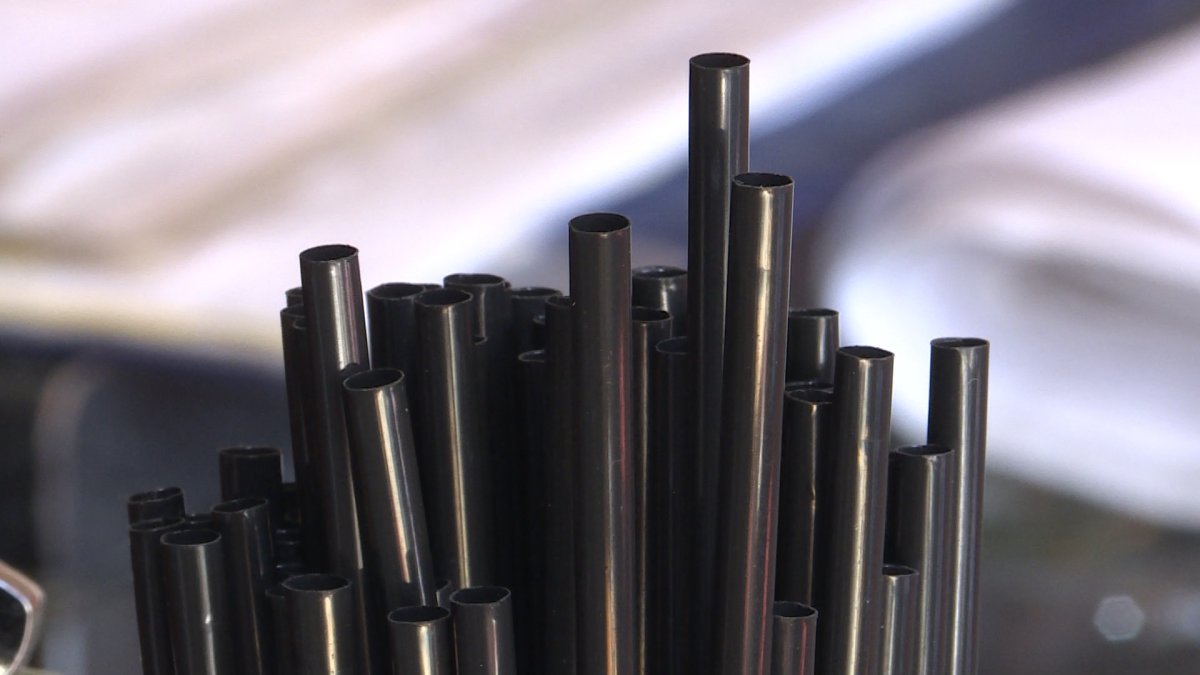Picking up coffee on the way to work might be a regular part to the day for many people.

But that might soon change with a potential bylaw coming through Vancouver that could ban the use of certain disposable items.
Vancouver councillors are meeting next week to vote on a proposed ban ban on the distribution of items like Styrofoam cups, disposable containers and straws from businesses.
It’s a part of the city’s Zero Waste Community Plan, which aims to reduce trash headed to landfills by 2040.
WATCH: Vancouver draft plan proposes fees for single-use cups and bags

“We’re really breaking new ground with cups. We haven’t seen any other jurisdictions really tackling the issue of disposable drink cups,” said Monika Kosmak, Zero Waste project manager for the City of Vancouver.
If approved, the ban would go into effect for November, 2019.
“That bylaw amendment proposes a $250 fine that could be issued through a ticket,” said Kosmak.
The bylaw would also require businesses to develop a single-use item (SUI) reduction strategy, which could involve no longer giving out items like cups and plastic bags, charging a fee for them or developing their own in-house strategy.
Vancouver’s proposed plan of action
- Ban on the distribution of foam cups and containers
- Ban on distribution of disposable straws
- Require businesses to implement SUI reduction strategies, which may include fees for disposable cups or bags.
Disposable items are often not reused or recycled according to the city. What’s more 2.6 million coffee cups are thrown in trash every week, costing about $2.5 million just to clean up.
Last year, advocates of the Binners Project ran an exchange depot for coffee cups and collected nearly 54,000 cups off Vancouver streets in just three hours.
Cultural events like the Vaisakhi Festival that takes place every year, also go through a number of disposable containers to serve hundreds of thousands of B.C. residents that attend.
This year, two brothers pushed to make this year’s Vaisakhi Parade event “Styrofoam-free,” and an effort to substitute disposable plates with sugarcane-based containers was attempted.
Since 2016, the city has attempted to engage the public to see what would be the best course of action to take.
City of Vancouver survey: what motivates residents to give up single-use items
- Concern for environmental impacts
- Striving to create less garbage
- Using user-friendly alternatives to single-use items
- Stay in a cafe to consume a drink in a reusable cup
- Sense of personal responsibility
- Voluntary measures by businesses (i.e. discounts)
The city received over 1,500 responses when it came to single-use items. And while the idea was well received, with nearly half of Vancouverites listing the removal of disposable items as a “high priority,” one third of the responses said something should have been done “yesterday.”
The city also included some business flexibility but Restaurants Canada, a national non-profit that represents Canada’s restaurant and food-service industry, says a number of questions and concerns remain.
According to a release by Restaurants Canada, the organization is concerned many of the approaches are directed towards businesses instead of the end consumer.
Restaurants Canada participated in the 2017 consultation process, and said in the release that “any initiative to reduce single-use item packaging must start with consumer education.”
It explained that simply adding fees to businesses that sell disposable products, or even banning single-use packaging in one municipality, will not significantly reduce single-use packaging that ends up in landfills.
Restaurants Canada said the city should focus on educating consumers on “how to best reduce packaging waste,” as consumers often demand the convenience of disposable take out cups and containers to fit the needs of their busy lifestyles.
The city will be going over the single-use item strategy during its May 16 council meeting, where councillors will vote whether or not to go ahead with the plan.
Kosmak said the single-use item plan will eventually include a requirement for all businesses to have a plan in place to work towards ensuring all disposable items can eventually be recycled or composted.







Comments